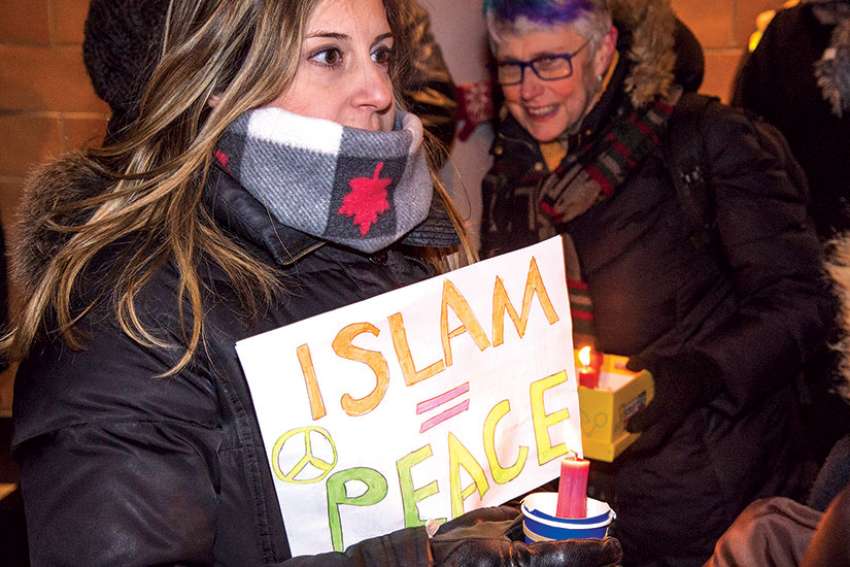While nearly half (46 per cent) of Canadians view Islam unfavourably, favourable views of Islam have increased by 10 points across the country since the last Angus Reid Institute survey in 2013. The most dramatic rise in Canadians who say they have a positive view of Islam is in Quebec, where support has doubled in four years from 16 to 32 per cent.
Outside of Quebec, support for Islam has been up and down — 31 per cent in 2009, 24 per cent in 2013 and 34 per cent in 2017.
What Muslim women wear has a big influence on Canadian attitudes. One in three Canadians support a person wearing the niqab, or face veil. An even lower percentage (29 per cent) support women wearing the full body covering known at the burka. The hijab, or headscarf, gets support from 75 per cent of Canadians.
By comparison, 88 per cent support Catholic religious women wearing traditional habits, 85 per cent support Jews wearing the kippah or yarmulke and 77 per cent support the turban required of Sikh men.
Christianity on the whole continues to have steady, stable support from over two-thirds of Canadians (68 per cent).
“When you compare the static nature of responses on Christianity and then the positive nature on all of the other ones, that’s where you get kind of an interesting view of what’s happening in 2017,” said Angus Reid Institute research associate Dave Korzinski.
Between Feb. 16-22, the non-profit Angus Reid Institute surveyed over 1,500 adults online using their Angus Reid Forum pool of willing survey respondents. ARI believes its results are equivalent to a random probability sample that would carry a margin of error of plus-or-minus 2.5 percentage points, 19 times out of 20.
Hinduism, Judaism and Buddhism all have support of at least half of Canadians (49 per cent, 53 per cent and 58 per cent). Sikhism gets a thumbs up from 38 per cent and Islam comes in at the one-third mark (33 per cent). But positive feeling for all of the minority religions is on the rise, said Korzinski.
“You see that big jump in Quebec for a number of different religions,” he said. “It’s not just Islam that’s being more favourably viewed.”
When religions are spoken of in the abstract they get a more negative reaction than when the question is personal, Christianity included. While a subdued 68 per cent view Christianity favourably, an enthusiastic 85 per cent would approve one of their children marrying a Christian.
A healthy 43 per cent of Canadians are okay with their children marrying into a Muslim family, 10 points higher than the number who approve of Islam itself.
The lower level of support for religion in the abstract likely has to do with Canadian discomfort with religious institutions, said Korzinski.
“People have kind of soured on that (institutional religion) in the last 30, 40 years, as the trends show,” he said.
Founded just two years ago, the Angus Reid Institute has made religion one of its most important survey subjects as it tracks social, cultural and political trends in the hope of encouraging more informed debate.
“We see religion as having a big place in public conversation,” said Korzinski.
The importance of faith in the lives of ordinary Canadians has persisted despite their waning attachment to religious institutions and formal religious practice.
“You see fewer people going to church and taking more active roles in religious communities. But faith in a lot of senses is still a very dominant, personal phenomenon,” Korzinski said.
“Faith is very important to them insofar as their own personal faith is. The religious institutions don’t tend to get the more favourable opinions.”


